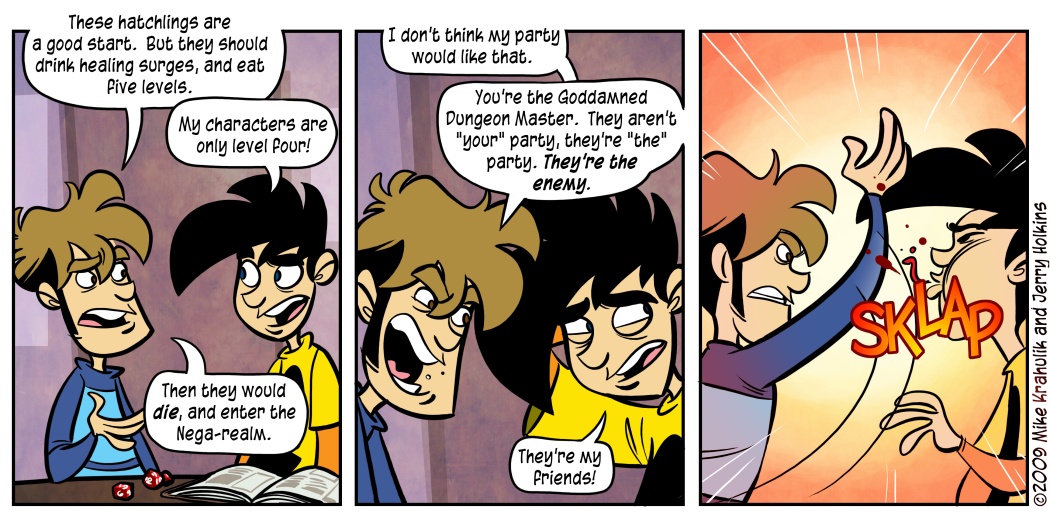On the strength of Uwe Boll's truly stupendous House Of The Dead movie, it's no surprise that he was entrusted with the rights to Fear Effect, Far Cry, Bloodrayne, and Dungeon Siege. Far Cry consciously emulates big-budget, Bruckheimer style action films, so somebody making a movie out of it doesn't startle. I don't hesitate for a moment when I say that a Fear Effect movie could be something striking indeed, a worthy candidate for conversion to animation specifically. In the right hands, even Bloodrayne - a game where a vampire dominatrix battles Nazi legions - I mean, I can conceive of a mental state where watching (or, indeed, creating) such a film would not result in injury. But Dungeon Siege? Put aside the fact that this director isn't capable of communicating with film - what, precisely, would this movie be about?
Dungeon Siege is certainly not unique among videogames for having a story that is either irrelevant or virtually nonexistent, and I don't pretend that this is some a grand revelation or even mean it to be some kind of attack on the game. John Carmack once said that story in a game is like story in a porn movie, in that you expect it to be there but it's not that important. For many genres, you can't really argue this point. As I fired upon waves of spacefaring insects in Galaga, I did not stop to wonder why I was doing that. I did not take a moment to consider whether or not those creatures hailed from a world called Galaga, or if individually they would be called a Galag and Galaga referred to the plural. Many action or platform games do not require stories in order for them to be satisfactory game experiences.
For an interesting counterpoint, and there are many, I would direct you to Silent Hill 2. Very few of the games I play ever cause me to really think about how I would react to the long-term, wasting illness of my spouse. I'm never eating a row of dots and then I'm like, oh right, cancer. However, were you to excise the story from Silent Hill 2, you would be removing practically every good thing. As a game, as a sequence of situations which require input at interval from the player, it's hardly worth talking about. The only thing that buoys that game above dreary, mechanical muck is the frightening concepts it presents. So, is Silent Hill 2 not a good game, in the classic sense? I guess it's a definition problem. It seems more likely that the word has evolved to encompass new types of interactive experiences.
The article I got that Carmack quote from makes a point that I would make if they hadn't already done it - if the author of a game does not explicitly create a story, even in a case like Carmack's where they are profoundly ambivalent about the fiction that establishes a game universe, the player will make sense of the game events and produce a narrative to occupy the vacuum. That's all true, I'm sure you could relate to me an experience where you'd done that. However, I'm not prepared to do that in a movie theater.
I will be polite and keep my raving about (site sponsor) Puzzle Pirates to a minimum.
It's tremendously appealing, it's Massive, and it's also multiplatform so don't shy away if you're visiting on OSX or Linux. You do what pirates do: drink, carouse, draw swords, sail, and pillage other vessels - except each of these activities manifests itself in-game as a different puzzle. Pirate ships are crewed by entire groups of active player characters, each one with their own jobs, working together to rob other ships full of players trying to do the same thing. Like A Tale In The Desert, it's such an original concept that it almost defies characterization.
(CW)TB out.
the rent's well worth him
